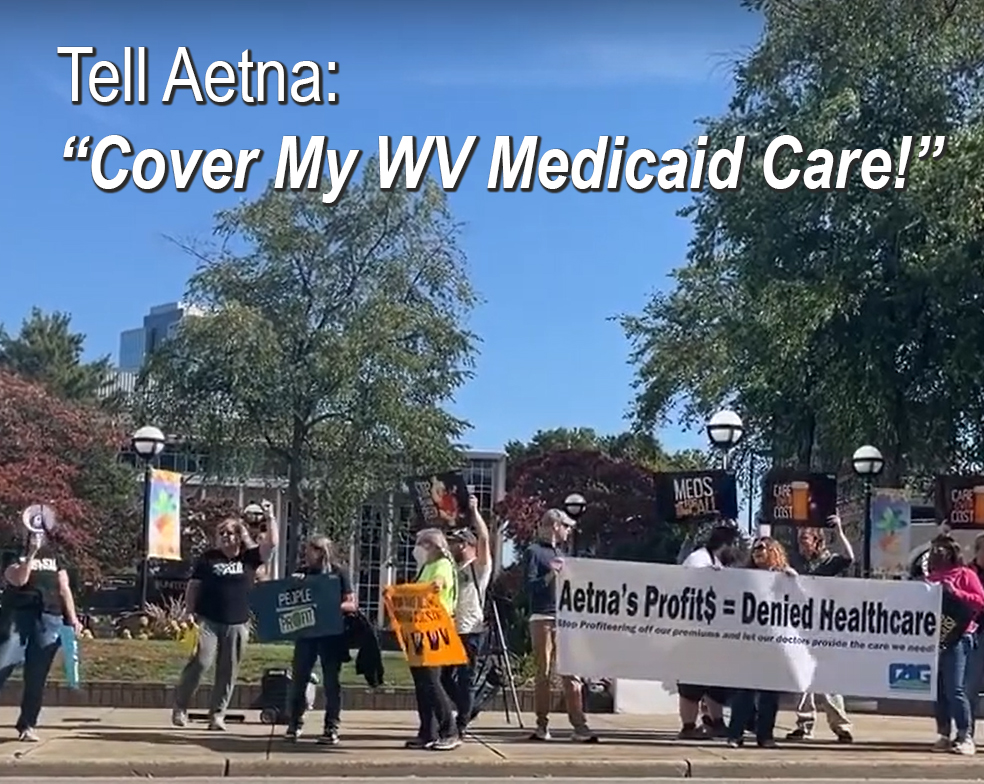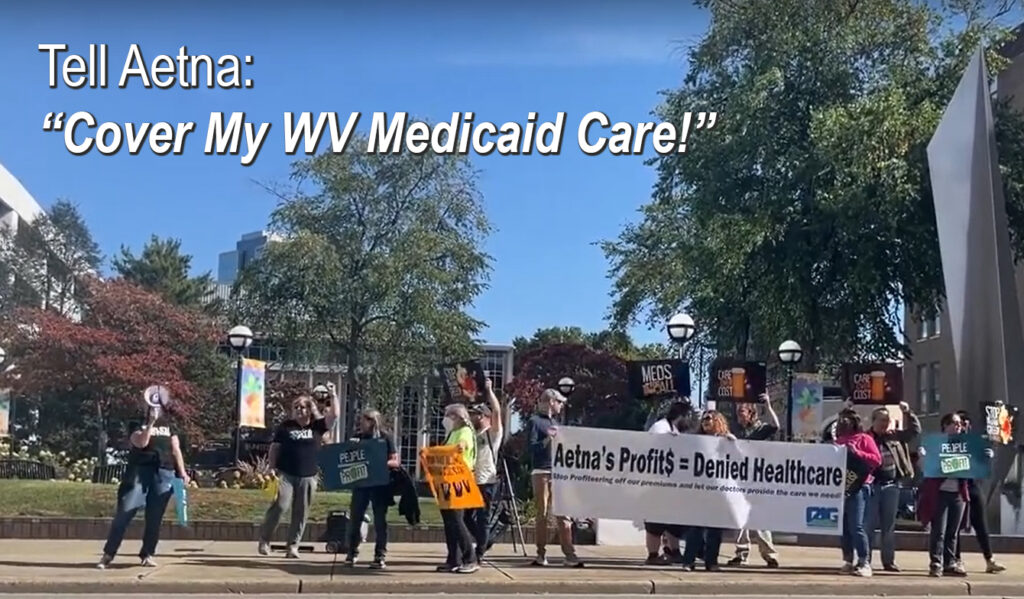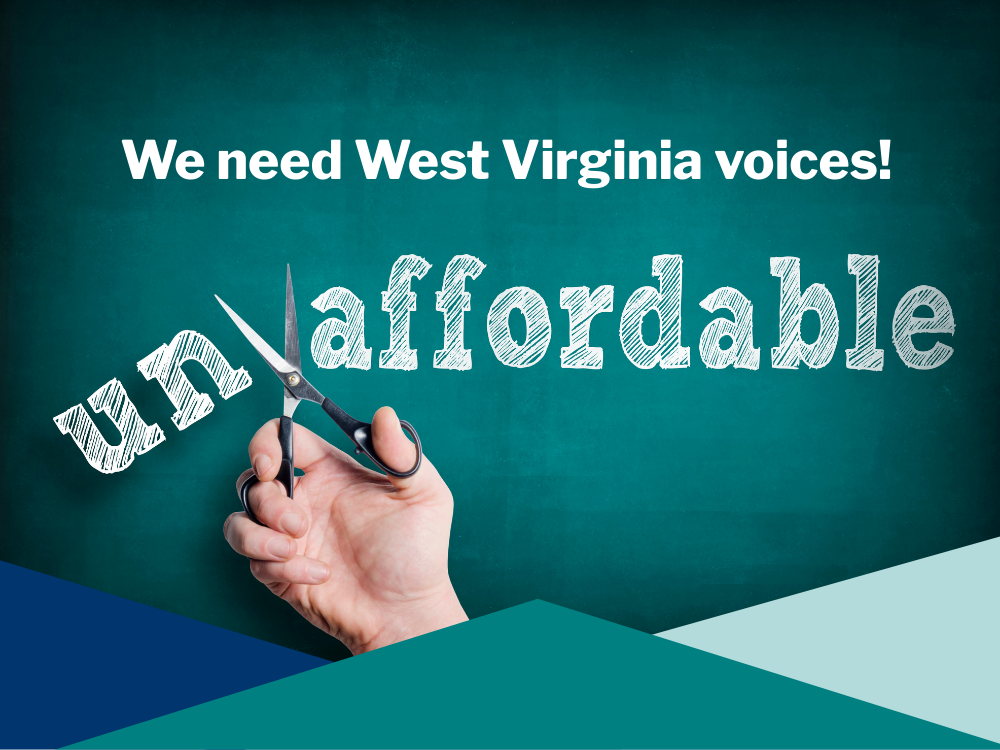- Like
- Digg
- Del
- Tumblr
- VKontakte
- Buffer
- Love This
- Odnoklassniki
- Meneame
- Blogger
- Amazon
- Yahoo Mail
- Gmail
- AOL
- Newsvine
- HackerNews
- Evernote
- MySpace
- Mail.ru
- Viadeo
- Line
- Comments
- Yummly
- SMS
- Viber
- Telegram
- Subscribe
- Skype
- Facebook Messenger
- Kakao
- LiveJournal
- Yammer
- Edgar
- Fintel
- Mix
- Instapaper
- Copy Link
We are in need of healthcare stories: West Virginians willing to share their struggles to afford medications or care, success stories from gaining Medicaid coverage, and most important to us right now are stories of claim denials, specifically from the Medicaid MCO Aetna Better Health of West Virginia.
Share Your Healthcare Story
We need claim denial stories about the Medicaid insurer
Aetna Better Health of WV.
What happens to people when their Doctor prescribed care has been denied?
They either get burred in debt, or they get sicker, and sometimes die.
Help us champion theirs cases, and fight denials on their behalf by bringing to light their struggles, making it public, and presenting these cases to Aetna.
On Wednesday, October 11th, at around lunchtime, WV Citizen Action Group, People’s Action, WV Poor People’s Campaign, Rise Up WV, New Economy Works WV and others held a demonstration and press conference outside of the Medicaid MCO Aetna Better Health of WV’s offices, located at 500 Virginia St. East, Charleston, WV 25311. Our demand was and is that health insurance corporations stop denying care to its members to pad their profits, honor their contractual obligation, do their job to provide coverage, stop profiteering off of our care, and instead put Care Over Cost.
This event was one of 14 that happened nationally led by the Care Over Cost campaign.
Before the demonstration, we spoke with the people inside, respectfully, and they agreed to meet with us in the coming weeks. But, only if we have claim denials to bring to them.
AETNA is part of the private health insurance industry, whose business model relies on denying members the treatments and medicines they deserve. Insurance companies make a lot of money off of denying our claims, to the tune of $260 Billion annually. Nearly 1 in 5 claims are denied (17%), and only about 0.2% of claims are appealed. In other words, since most people can’t figure out the complicated appeals process, it is a near guarantee that companies get to keep that money instead of paying it out for people’s health care.
Claims denials are when a health insurance corporation refuses to pay for care that your doctor prescribed and you’ve already received – sticking you with the bill, unnecessary medical debt and even bankruptcy. A prior-authorization denial is when your insurance refuses to pay for a medicine, surgery or other treatment before you even get it. So you can’t get the care you need and stay sick, stay injured, or even die as a result. These denials hurt black and brown folks (especially women and infants), and rural and poor folks the hardest.
Private insurance companies deny well over 248 million claims or pre-authorization requests from their policyholders annually, often using AI.
Aetna Better Health of WV, according to a July DHHS report, has a prior authorization denial rate of 13.7%. And their medical directors, according o a CNN article, don’t read patient’s records before denying claims, they don’t have enough time to because they are given ridiculously small windows for reviewing each case. In addition, in Oklahoma, a patient was awarded a $25 million dollar verdict in a “bad faith” case after Aetna company denied cancer treatment.
Aetna, according to Fierce Health, had record revenues of $91.4 Billion in 2022, up 11% over the previous year.
Aetna’s parent corporation, CVS Health:
- Paid their CEO Karen Lynch $21,317,055 last year.
- Took $6 billion in profit from their Aetna insurance division in 2022 alone.
- Spent $20.57 million on lobbying in the 2021-2022 cycle.
Where are Aetna’s huge profits coming from? They are a direct result of the denials of care to sick patients.
I spoke with a woman who said she was denied a CT Scan for months by Aetna. She shared that her doctor fought the good fight and appealed again and again. Finally she got the scan she needed. But, by then, the cancer had spread.
She is not alone.
Please lend a hand. Help us find these stories, bring them to light and directly to Aetna. Help us fight on on the behalf of West Virginians unable to get the care they need, or are in overwhelming debt. Let’s honor them by sharing their stories.




